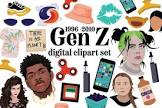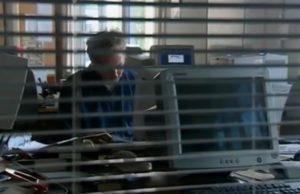- ‘Lies, damned lies etc…’ - 13th February 2026
- Missing in action - 12th February 2026
- Travel news again - 11th February 2026

During 23 years with the BBC and 41 years in journalism, for our Editor, Welshman Phil Parry keeping up to date with new words (along with changes in the language), has always been vitally important, and now comes new evidence that younger people are today using a different phraseology altogether, which is driven by social media.
It’s important (though difficult) to keep up to speed with changes in the language, because they seem to move so fast – not least now with the use of ‘internet-speak’!
 This is especially central in the context of what has just happened.
This is especially central in the context of what has just happened.
The Oxford ‘word of the year’ in 2024 is BRAIN ROT (surely that’s TWO words!). It is a term that captures concerns about the impact of consuming excessive amounts of low-quality online content, especially on social media, and its use increased from 2023 to 2024 by 230 per cent!

After this news, it is interesting to note that for young people using social media today, some words are IN (and a few are old-fashioned ones), with completely new ones being created all the time.
For example the word ‘demure’ is old—it describes the sort of modest lady people esteemed in the 19th century—but it is now in vogue once more.
There are some 800,000 posts on TikTok with the tag #demure.
Youngsters today are using the word with lashings of irony, invoking it to describe everything from Saturn to sunset to New York City’s bin service.
Social media (and TikTok in particular) is changing how young people talk, and other fusty words, such as ‘coquette’ are fashionable again.
 Colloquialisms are on the rise too, particularly among members of ‘Gen Z’.
Colloquialisms are on the rise too, particularly among members of ‘Gen Z’.
These people are also known as Zoomers, and were born between 1997 and 2012.
They say ‘yapping’ instead of ‘talking’ and trim ‘delusional’ to ‘delulu’.


New words have also become popular via the internet.
Take ‘skibidi’ for example.
This is a term popularised by a meme of an animated head singing in a toilet; it means ‘cool’, ‘bad’ or ‘very’, depending on the context.
Linguistic ‘code’ has emerged as well, and this too is now under the microscope.
 It is dubbed ‘algospeak’, to dodge content-moderation algorithms.
It is dubbed ‘algospeak’, to dodge content-moderation algorithms.
This code includes euphemisms (sex workers, for instance, are called ‘accountants’), as well as misspellings (‘seggs’ is used, instead of ‘sex’).
All this speeds up the evolution of language.
 That befuddles dictionary-makers (as well as journalists like me!), who must keep a record of the ever-expanding lexicon.
That befuddles dictionary-makers (as well as journalists like me!), who must keep a record of the ever-expanding lexicon.
The Oxford English Dictionary (OED), the UK’s most illustrious chronicler of language, adds a word only after it has been used for about five years.
But that is too slow to keep up with modern parlance.
The OED is only now adding words such as ‘binge-worthy’, which already feels tired; its own ‘word of the year’ for 2023, ‘rizz’ (charm), which originated and was popularised online, has not yet made the cut.

TikTok has just the phrase to describe such a modest approach: VERY DEMURE!.
The memories of Phil’s, astonishing decades-long award-winning career in journalism (during which it was important to keep up with changing trends in words) as he was gripped by the incurable disabling condition Hereditary Spastic Paraplegia (HSP), have been released in a major book ‘A GOOD STORY’. Order it now!
Tomorrow – we show how senior executives have condemned the BBC’s handling of the Gregg Wallace affair with it coming after a string of high-profile scandals, and amid revelations that managers were warned ‘multiple times’.









